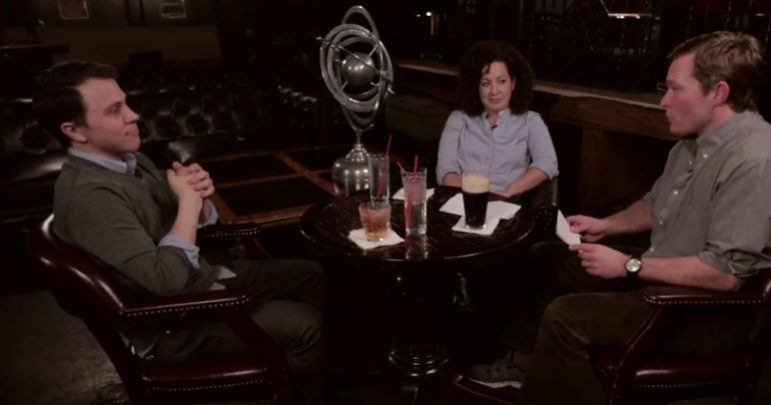
BRIC TV
Ryan Devereaux of The Intercept (at left) and Buzzfeed’s Miriam Elder join Murphy on the set.
One could drown in the superlatives generated by the 2016 presidential campaign and the transition to and first days of the Trump presidency. But the high profile occupied by the normally secretive world of intelligence work is certainly one unique feature of this moment in history.
We’ve had the hacking of emails belonging to the Democratic campaign apparatus, the dispute between the president and intelligence agencies over whether Russia was behind that hacking, President Trump’s support for torture and disinterest in a daily intel briefing, his omission of the DNI from the national security principals group and the odd spectacle of a very public draft executive order on previously very hush-hush black sites.
Not since the fallout over pre-Iraq War intelligence, and before that the Church Commission, has the cloak-and-dagger stuff been so front-and-center, and probably never the way it is now, with some on the left who are normally skeptical of the spy agencies defending the spooks against a president they dislike even more.
The media have been dragged into the spotlight along with the spies, and not just because the president blames reporters for manufacturing his argument with the intelligence community. When Trump points to the pre-Iraq intelligence failures, that’s an implicit dig on the news agencies that lent heft to that tragically flimsy evidence. There’s a competition for American eyeballs between real journalists and fake news linked to foreign propaganda efforts. Buzzfeed’s decision to publish the unsubstantiated dossier that a British ex-spy had been circulating containing blackmail material on Trump supposedly compiled by Russian intelligence triggered a debate within the media. The fact that Obama was largely given a pass by the media for his campaign against whistleblowers and other aspects of his administration’s GWOT has garnered less attention. (And as the Carl Bernstein excerpt above indicates, questions about the role the media plays in the intelligence game are nothing new.)
Last week, BRIC TV’s Straight Up brought Miriam Elder of Buzzfeed and Ryan Devereaux of The Intercept together with me at Bedford Hall in Bed-Stuy for a few drinks and a little talk about what’s behind these stories and what’s ahead for journalists covering the war on terror and Russia’s reach.
Watch below or scroll down further for a podcast version.








